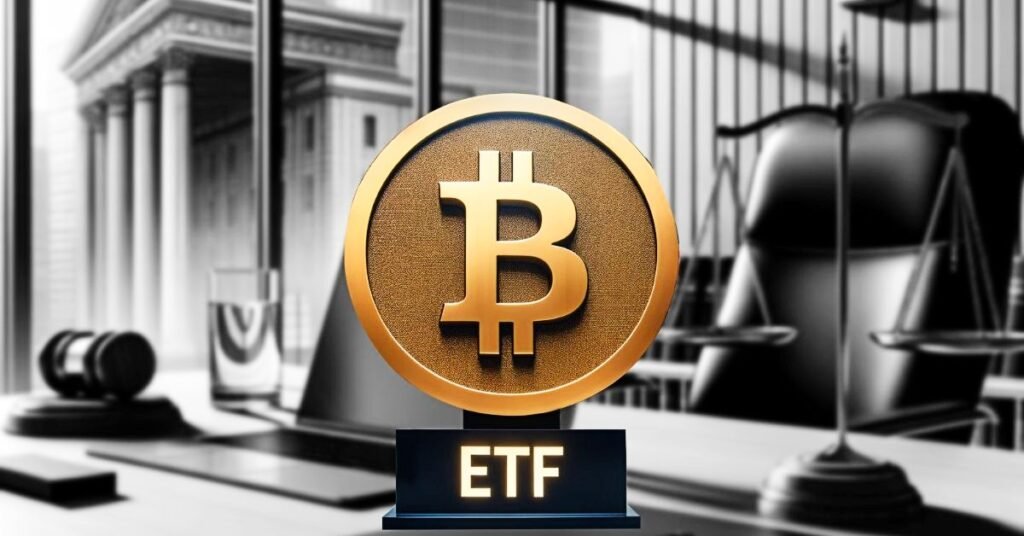On Tuesday, it came to light that the Securities and Exchange Commission (SEC) had experienced a security breach on one of its accounts, leading to the disavowal of a recent post. This post falsely stated that the SEC had given the green light for the launch of the first Bitcoin ETF.
An SEC representative made it clear that the compromised account, @SECGov on Twitter, was not the source of the unauthorized Bitcoin ETF tweet. The tweet did not originate from the SEC or any of its personnel.
The SEC later detailed that an unidentified party had gained unauthorized access to the @SECGov account on Twitter. This occurred briefly after 4 pm ET, but the unauthorized access was swiftly terminated.
Gary Gensler, the Chair of the SEC, addressed the issue by stating that the SEC has not sanctioned the listing and trading of spot Bitcoin exchange-traded products. Following the misleading post, which suggested that ETF approval had been granted, Bitcoin’s price experienced a brief surge. However, Bitcoin’s price quickly fell below its levels prior to the announcement. By 5:35 p.m. ET, Bitcoin was trading at $45,828, marking a roughly 2% drop from its price before the false post and a 2.5% decrease over the past 24 hours.
In response to the breach, the SEC expressed its plan to work alongside law enforcement and government partners to investigate the incident. The aim is to determine the necessary actions to address the unauthorized access and any related misconduct.
The breach of the SEC’s official government account sparked immediate demands for an investigation, especially given the significant impact it had on Bitcoin’s market price.
What is Bitcoin ETF?
Bitcoin ETF, or exchange-traded fund, represents a type of investment vehicle that trades on traditional market exchanges, as opposed to cryptocurrency exchanges. Their primary function is to track the value of Bitcoin, thereby providing investors with a more streamlined method of investing in this cryptocurrency. This eliminates the need for investors to navigate the often complex world of cryptocurrency exchanges.
In the world of finance, the buzzword of the moment is undoubtedly ‘Bitcoin ETF’. As the cryptocurrency market continues to mature, the prospect of a Bitcoin Exchange-Traded Fund (ETF) has become a hot topic among investors and regulators alike. Amidst a swiftly changing regulatory environment, financial giants BlackRock (BLK) and VanEck, both vying to introduce bitcoin (BTC) exchange-traded funds (ETFs) in the United States, made rapid revisions to their documents on Tuesday.
The recent filings suggest that both firms received feedback from the U.S. Securities and Exchange Commission (SEC) within 24 hours, highlighting the SEC’s agile responsiveness. As reported by CoinDesk, the SEC provided comments to potential bitcoin ETF issuers soon after they filed paperwork outlining proposed product fees on Monday.
The journey towards a Bitcoin ETF has been a long one, fraught with regulatory hurdles and market volatility. For over a decade, numerous applications for a Bitcoin ETF have been submitted to the U.S. Securities and Exchange Commission (SEC), only to be met with rejection.
In this latest update on Tuesday, notable alterations in the language aim to mitigate potential shareholder losses in insolvency scenarios and address conflicts of interest among the ETF’s authorized participants. This unfolding process demonstrates an almost unprecedented engagement between the SEC and potential issuers, with filings being adjusted following SEC responses, all within a 24-hour timeframe.
Anticipations are high for the SEC to approve all applications this week, given the impending January 10, 2024, deadline – particularly for the application submitted by Ark and 21 Shares. The SEC might opt for a collective approval of all applications to ensure fairness.
Recent reports suggest that the SEC could be on the verge of approving a spot Bitcoin ETF in the U.S. This has led to a surge in optimism among cryptocurrency enthusiasts, who believe that the approval of a Bitcoin ETF could herald a new era of mainstream acceptance for digital currencies.
The ongoing regulatory saga surrounding bitcoin ETFs has captured the financial community’s attention, showcasing the SEC’s active involvement. BlackRock and VanEck, significant contenders, are seeking regulatory clearance for bitcoin ETFs, a product generating substantial market excitement.
What sets this situation apart is the SEC’s swift reaction to the initial submissions. The commission expedited reviews and provided significant comments, prompting BlackRock and VanEck to swiftly modify their documents. This dynamic interaction underscores the urgency and importance the SEC places on approving these innovative financial products.
The revised documents highlight changes addressing shareholder protection during insolvency scenarios. BlackRock and VanEck emphasize investors’ security, even under adverse conditions. The acknowledgment of potential conflicts of interest among the ETF’s authorized participants underscores transparency and fairness, addressing concerns raised by the SEC.
With the January 10, 2024 deadline approaching, the SEC faces a critical moment to decide on the future of bitcoin ETFs in the U.S. There’s an expectation that, given time constraints, the commission may opt for simultaneous approval of all applications, ensuring fairness.
The SEC’s decision will not only impact BlackRock and VanEck but will also set a significant precedent for regulating digital assets in traditional finance. The financial community, investors, and cryptocurrency enthusiasts eagerly anticipate this regulatory outcome, potentially marking a significant step in merging traditional finance with cryptocurrencies.
Despite the excitement, it’s important to remember that the situation is still evolving. The SEC has yet to make a final decision, and the recent confusion surrounding a false approval post on a social platform has only added to the uncertainty. The potential impact of a Bitcoin ETF is significant.
Some analysts predict that the approval could lead to a huge influx of investment, as it would provide a more accessible and regulated means for investors to gain exposure to Bitcoin. However, others caution that the initial impact might be overestimated.

